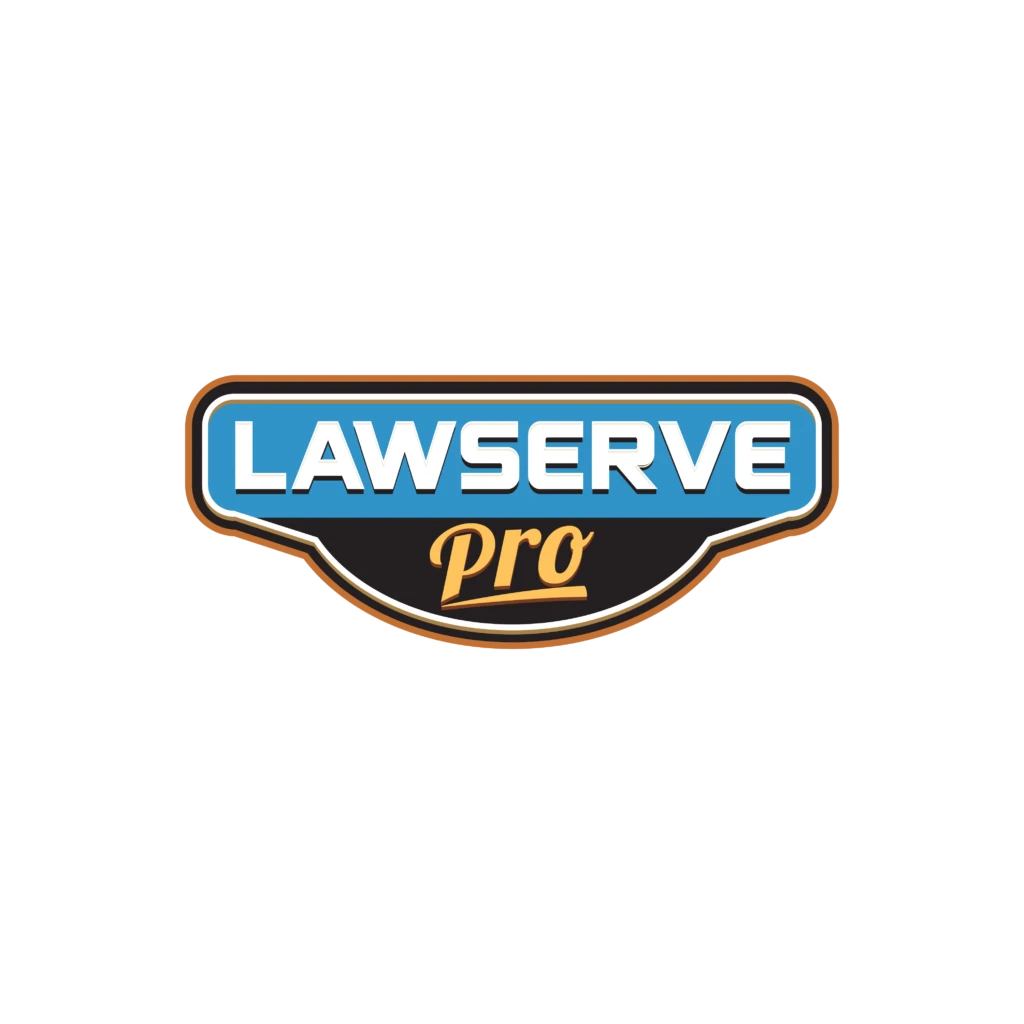What proof of service form applies to my case in California?
What proof of service form applies to my case in California?
What Proof of Service Form Applies to My Case in California?
In California’s legal system, whether you are involved in a family law matter or a civil lawsuit, a core step is formally telling the other person about the court action and the papers you filed. This is called service.
To show the court that you served the papers correctly, you must file a Proof of Service form. Without this document, your case generally cannot move forward. The court needs proof that everyone involved has been told, according to strict legal rules.
A Proof of Service form does more than just record delivery. It ensures you follow California’s legal requirements for serving court documents. However, figuring out which specific form to use can be confusing, given the different case types and various serving methods. This blog will help you understand California’s most common forms and which one fits your situation.
Who Can Serve Court Papers?
Before we look at the forms, it’s important to know who is legally allowed to serve court papers. In California, the person serving the papers must be at least 18 years old. Also, they cannot be a party to the case. This means you cannot serve your own papers if you are directly involved in the lawsuit.
The law stops parties from serving their own papers to keep things fair and to protect the legal process. It avoids any chance of someone falsely claiming papers were served.
Your server can be:
- Someone you know who is over 18 and not part of the case.
- The county sheriff or marshal (available in most counties).
- A professional process server.
Using a professional process server such as LawServePro is often a good choice, especially for sensitive or complex cases. We know California’s process serving laws and we can make sure service is done correctly and efficiently.
Service Methods and Their Forms
The Proof of Service form you need depends mainly on:
- How you served the documents.
- What type of case it is (family law or civil).
- Proof of Personal Service (FL-330 and POS-040)
Personal service means physically handing the legal papers directly to the recipient. This is one of the most reliable ways to prove service.
- FL-330 (Proof of Personal Service): This form is for family law cases. Use it when documents are given directly to the person. This is common for important papers like divorce filings, child custody orders, or support orders.
- POS-040 (Proof of Service in Civil Cases): This form is used in civil cases. It proves service for documents other than the first summons and complaint. You can use it for personal service of these later civil papers. The form asks who served the papers, when, where, and who got them. Important: Do not use POS-040 for the initial summons and complaint.
- Proof of Service by Mail (FL-335, POS-040, and POS-030)
Serving by mail can be easier than personal service. But you can only use mail for certain types of legal papers. It is often used for follow-up notices or updates in ongoing cases.
- FL-335 (Proof of Service by Mail): This form is for family law cases. Use it when documents are mailed to the other side. The person who mails the papers must write the recipient’s address, list the documents sent, and state the mailing date. They must certify that the papers were sent by first-class mail. Note: You cannot be the server if you are a party to the case, even for mail service.
- POS-040 (Proof of Service for Civil Cases): As mentioned, this form is used in civil cases for documents other than the summons. It has a section to show service by U.S. mail.
- POS-030 (Proof of Service by First-Class Mail for Civil Cases): This form is for providing service by first-class mail in civil cases. Like other mail service forms, it requires details about the papers mailed, the date, the recipient’s address, and the server’s statement. This form should not be used for proof of service of an initial summons and complaint.
- Service of the Initial Summons (FL-115 and POS-010)
When you start a case, like a divorce or a civil lawsuit, you must serve the other person with the very first legal papers, which include a summons. Serving the summons is a key step at the start of any family law or civil case.
- FL-115 (Proof of Service of Summons): This form is specifically for showing proof of service of the summons and other first papers at the start of a family law case. It records who was served, what papers they got, and how service was done (personal service, mail, or other legal methods).
- POS-010 (Proof of Service of Summons): This form is used for showing proof of service of the summons in civil cases. This form is not used for serving a summons.
Personal service is usually required or preferred when serving initial papers like a summons or petition. However, other methods might be allowed or needed in certain cases. Examples include substituted service (leaving papers with another adult at their home or work after trying many times to find the person) or service by notice and acknowledgment of receipt (where the person agrees to accept service by mail and signs a form). If you use these methods for a summons, you still use FL-115 or POS-010. You will just explain how the service was completed.
- Domestic Violence Cases (DV-200)
Cases involving domestic violence have special rules because they are serious and urgent.
- DV-200 (Proof of Personal Service): This form is for documenting personal service of restraining order papers in domestic violence cases. It records the date, time, location, who served it, and who received it. Because these cases are so high stakes, using a professional process server is strongly recommended to ensure proper handling and compliance with strict rules.
Other Service Methods
Beyond the common methods (personal and mail) and the initial summons, California law allows other ways to serve papers for special situations:
- Substituted Service: Used when the server cannot find the individual after many attempts. Papers are left with another adult at their home or work, followed by mailing.
- Service by Notice and Acknowledgment of Receipt: The recipient agrees to accept service by mail and signs a confirmation.
- Service by Posting and Mailing: Used in eviction cases. This often needs court permission.
- Service by Publication: Publishing notice in a newspaper when the recipient cannot be found. This always needs court permission.
- Service by Posting: Putting a notice at the courthouse. This also needs court permission.
- Small Claims Certified Mail: Where the court clerk serves by certified mail (not available in all courts).
- Out-of-State Mail Service: Mailing papers to someone who lives outside California.
For many of these less common methods, forms like POS-040 or POS-030 might be used to document the service. You would also need to include extra statements (like a declaration of due diligence for substituted service or service by publication/posting) explaining the efforts made to find the person. The specific form still depends on if the document is a summons (FL-115 or POS-010) or other papers, and whether it’s a family law or civil case.
How to Fill Out and File the Proof of Service Form?
No matter which form you use, filling it out correctly and filing it with the court is crucial. This helps avoid delays or problems.
The form usually asks for:
- Information about the case (names of parties, court name and address, case number).
- A statement from the server. They must say they are over 18 and not a party.
- What documents were served.
- Specific details about how, when, and where service happened (date, time, location, method used).
- Information about the person who was served (name and address).
- The server’s name, address, and signature.
The server must sign the form under penalty of perjury. This means they swear the information is true. Lying on this form is a serious offense.
Once completed and signed, the form must be filed with the court. This officially records the service. It tells the court that delivery has occurred as required by California law. You should keep a copy for your records.
Avoiding Common Mistakes
Mistakes on Proof of Service forms can lead to significant delays, extra costs, or even a case dismissal. Common errors include:
- A party to the case trying to serve the documents themselves.
- Missing or incorrect information on the form (names, dates, addresses, case numbers). Accuracy is very important.
- Not filing the completed form with the court.
- Using the wrong way to serve papers for the specific documents or case type.
The Benefits of Professional Process Serving
Understanding these requirements and making sure the correct form is used can be complex. This is where professional process servers, like LawServePro, become very valuable.
Hiring a professional process server offers several benefits:
- Expertise: They know California’s legal rules and proper service methods well. This lowers the risk of errors.
- Reliability and Efficiency: They handle the process quickly, even when recipients are hard to find or uncooperative.
- Accuracy: They make sure forms are completed thoroughly and correctly.
- Peace of Mind: Knowing that legal rules are being met helps you focus on other parts of your case.
In emotionally charged family law cases, having a professional manage the service process can also help prevent complications and ensure all strict legal rules are followed.
Choosing the right Proof of Service form in California depends on if your case is in family law or civil court, and how the papers were served. Whether it’s the FL-330, FL-335, FL-115, DV-200 for family law, or the POS-040, POS-010, POS-030 for civil matters, using the correct form and completing it accurately is a critical step in the legal process.
If you are unsure which form applies or need help serving legal documents in California, getting professional help is a wise choice. Professionals like the experienced team at LawServePro handle every step with efficiency and care. They ensure compliance and help your case move forward without unnecessary delays.
AGGRESSIVE AND PROFESSIONAL NATIONWIDE PRIVATE PROCESS SERVERS
Here at LawServePro, it’s our number one priority to make your job easier. Whether you need legal documents served, a foreign subpoena domesticated, or court documents retrieved, our expert team of professionals are ready to help. Call today for a free quote!
Account
Connect
National Headquarters
8482 Fort Smallwood Road
Suite B-110
Pasadena, MD 21122
8482 Fort Smallwood Road
Suite B-110
Pasadena, MD 21122
© Copyright by LawServePro 2021 | Web Design by Exo Agency
No products in the cart.

